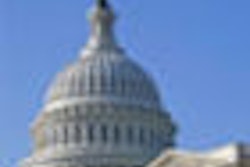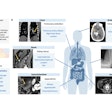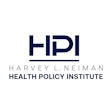A bill passed in August out of a U.S. House of Representatives committee that would repeal the Medicare sustainable growth rate (SGR) formula may soon hit another obstacle as it proceeds on its legislative journey: a higher price tag.
In May, the Congressional Budget Office (CBO) estimated that the Energy and Commerce Committee's solution, HR 2810 (the Medicare Patient Access and Quality Improvement Act of 2013), would increase direct Medicare spending by $139 billion over the 2014 to 2023 period. However, in a September 13 report the CBO updated this estimate, stating that the bill would cost more like $175 billion -- 26% more.
Cuts in Medicare payments are required under the SGR formula, which links Medicare reimbursement rates to increases in the country's gross domestic product. The SGR has mandated cuts every year since 2002, but each year Congress has passed legislation delaying its implementation.
"Under current law, Medicare's payment rates for physicians' services are slated to drop by about 24% in January 2014," CBO said. "CBO projects those payment rates will increase by small amounts in most subsequent years, but will remain below 2013 levels through the 2014 to 2023 period."
Axing the SGR is the first step of a phased-in transition to new payment models, according to CBO. To start, HR 2810 would stabilize annual physician reimbursement raises at 0.5% from 2014 to 2018. After 2019, depending on their quality of care, physicians would receive adjusted fee-for-service rates, which would be determined in one of two ways:
- Payment rates would be based on a physician's performance in the Quality Update Incentive Program (QUIP).
- Physicians could choose to be paid for some or all of their Medicare services under an alternative payment model such as accountable care organizations or bundled-payment programs.
Payment rates for providers under QUIP would be determined based on their performance relative to thresholds stated in the bill, CBO wrote. In addition to the 0.5% annual update, providers going beyond the top quality-measure threshold would get a 1% raise. Those who did not meet the lower quality-measure threshold would get a negative 1% adjustment, while the pay rate for physicians falling between the two thresholds would not change. Providers who did not submit data on the quality measures would get dinged 5%.
CBO considered possible outcomes in terms of both the share of Medicare spending for physicians' services that would be subject to payment under the QUIP and alternative payment method options, the relative cost of possible alternative payment models, and the savings that could accrue to the Medicare program through the use of alternative payment methods.
"Taking into account the effect of the automatic 0.5% annual update that would begin in 2014, CBO estimates that enacting the QUIP and alternative payment method mechanisms specified in HR 2810 would increase direct spending by about $112 billion over the 2019 to 2023 period," CBO wrote. "That increase, in combination with the $63.5 billion cost of the automatic updates during the 2014 to 2018 period, would result in a total increase in direct spending of $175.5 billion over the 2014 to 2023 period."
The hunch is that more doctors will try alternative payment methods rather than stay in the fee-for-service model, according to Cynthia Moran, assistant executive director for government relations at the American College of Radiology (ACR).
"The CBO expects that most physicians will migrate to alternative payment methods, since these methods will give them the opportunity to make more," Moran told AuntMinnie.com. "That's why the CBO thinks this House bill would not slow down costs of physician payment in the Medicare program -- although it could improve coordination of care."
What's next for the bill? The House Ways and Means Committee is developing its own version, and once it's introduced, the two bills will have to be combined into one before going to the House floor for a vote, Moran said. On the Senate side, the Senate Finance Committee is working on similar SGR repeal legislation.
"We think the House is going in the right direction, and we're looking forward to watching the process play out," Moran said. "The Senate is also going in the right direction, and the ACR is working with them on imaging-specific proposals."




















